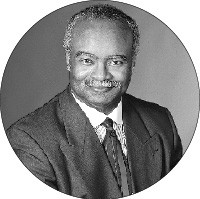Talk about your bitter ironies. Days after MLGW announced that it would eat a multimillion-dollar loss and sell its 49 percent share in the public/private telecom venture Memphis Networx, subscribers to Business Week were reading all about the telecom industry’s triumphant comeback.
The magazine’s cover story — “Telecom: Back from the Dead” — cited a growing body of research indicating that investments in high-speed communications play a more vital role in “stimulating economic growth and productivity” than money spent on “roads, electricity, or even education.” If all of this is true, how can MLGW even consider dumping its $29 million investment in Networx for the paltry sum of $994,000?
At least part of the answer can be found in the third paragraph of the story, in which Business Week cites the example of a video clip being uploaded in New Jersey. The video exits Google by way of Level 3 Communications’ 47,000-mile fiber-optic network, is then “handed off” to a “new fiber loop” run by Verizon, and “milliseconds later,” the video is showing in an apartment in New Brunswick. What does any of this have to do with Networx? Plenty.
Communications Infrastructure Investments (CII), the Colorado-based holding company that’s trying to buy Memphis Networx for $11.5 million, was founded by Dan Caruso, a founding executive of Level 3 Communications. Caruso is also the former CEO of ICG Communications, which Level 3 bought out in 2006, adding 2,000 miles of fiber in Colorado and the Ohio Valley to its already substantial holdings.
ICG’s backers — Columbia Capital and M/C Venture Partners — picked up $30 million in cash on the deal and $127 million in Level 3 stock. Columbia Capital and M/C Venture are two of the five venture-capital groups backing Networx’ potential buyer, Communications Infrastructure Investments.
The bottom line? Big venture-capital money is being invested in telecoms again. And it seems likely that Memphis Networx fiber-optic cable is destined to become just another piece of the increasingly valuable conduit for moving YouTube clips of bathtub farts and nipple slips from Google central to your computer.
If you build it …
In the film Field of Dreams, Iowa farmer Ray Kinsella (played by Kevin Costner) was told famously, “If you build it, they will come.” The analogy isn’t exact, but Memphis Networx built a broadband fiber network for Memphis, ran out of money, and now “they” — in the form of venture-capital communications companies — are coming.
It’s important to understand that the telecom failures of 2001 — the year Memphis Networx became operational — represent the largest industry crash since the Great Depression. The spectacular decline has been blamed, in part, on overaggressive investment in expensive infrastructure. And now, holding companies like CII and American Fiber Systems can acquire and resell ready-made infrastructure systems and customer bases of companies like Networx for a fraction of the build-out and maintenance cost.
“It’s interesting to me that [Networx] is where it is,” says Herman Morris, the soft-spoken mayoral candidate who served as president of MLGW when Networx was created. “It’s an asset that’s been built out with 50 or 60 years of life left in it, and probably less than 10 and certainly less than 20 percent of that asset is being used.”
Morris asserts that in spite of Networx’ failure to turn a quick profit for its private investors, the company has already achieved its primary goal, which was to improve Memphis’ communications infrastructure by building an underground loop of high-speed fiber.

“When we got the loop, it took us from a third- or fourth-tier city in terms of infrastructure to a tier-two,” Morris says. “We’re not New York, clearly … but we were doing what we needed to do in terms of building an attractive component for businesses looking to relocate or expand here. It’s kind of like building out an airport so FedEx can expand its operations. And it was important that we weren’t the last city with an infrastructure that would serve the high-tech sector in the 21st century.”
Morris describes Networx’ public/private partnership as “a marriage of convenience” and says he knew on the front end there would eventually be a “divorce.” “Venture capitalists are high-risk investors,” Morris says. “They want big fluctuations [in market value], and they want to catch [the market] on a high. We were kind of like savings-bond investors. When you’re investing for 50 years, the investment doesn’t have to kick out more than 1 or 2 percent a year. That’s a good steady return, and stability is important.”
The big payoffs in this kind of investment, Morris notes, aren’t necessarily measured on a spreadsheet listing Networx’ profits and losses.
“When [a business] relocates to or expands its operations in Memphis, [MLGW] gets more revenue from old infrastructure,” Morris says. “From the wires, the pipes, and the gas.
“It’s not just that a company comes to town and folks get jobs and all that good stuff. The utility company now has a customer that instead of having a 200-square-foot operation has a 20,000-square-foot operation or a 200,000-square-foot operation. And that operation is filled with computers and air conditioners and all the things it takes to run a business. It’s not exactly a self-feeding system, but there is a lot of synergy.”
The wisdom of Morris’ decision to launch a telecom venture at a time when every market analyst was predicting a crash is debatable. But in spite of a marketplace burned by everything ending with “com,” Networx survived and grew at a reported rate that was at or above anticipated levels. The company showed a miniscule profit for the business cycle ending in 2005 and seemed to be on its way to making the 1 to 2 percent return that would have made Morris happy.
Small, slow profits, however, are less meaningful to the private investors who assumed a majority stake in Networx in 2005, when the City Council turned down MLGW president Joseph Lee’s proposal to secure a $6 million loan and prevent MLGW from losing its superior equity status in Networx. Now Networx is on the auction block, and Memphis is positioned to lose big in what appears to be a winning field.
City Council Concerns
Last week, MLGW’s board decided to remove the vote to approve Networx’ sale from Thursday’s board agenda. The decision was made to satisfy concerns raised by the City Council, particularly that the $11.5 million offer made by Communications Infrastructure Investments was not the highest bid. According to MLGW commissioner and Networx board member Nick Clark, the delay is risky but shouldn’t impact the deal.
The council’s concerns come in light of a odd arrangement between Networx and CII: that Networx’ sale price will drop by $1 million if the Memphis City Council gets too deeply involved in the process. And although he agreed to provide the council with requested information about the top companies bidding for Networx, Clark offered words of caution:
“It’s like when you’re selling a house,” he said. Tipping your hand on the low bids might give the winning bidder second thoughts about the asking price.
The council’s stepped-up interest in the Networx sale comes in the wake of last Tuesday’s news that American Fiber Systems (AFS) of Rochester, New York, claimed to have offered a bid for Networx valued at $13.5 million. And it was recently revealed that another company submitted a bid valued at $20 million.
Clark was mildly dismissive of the council’s concern, noting that the AFS offer included stock. He drew a round of knowing laughter from observers by comparing AFS’ stock options to promises made by Memphis’ all-purpose bogeyman Sidney Schlenker, the smooth-talking chiseler from Denver who sold Memphis on The Pyramid, a rideless theme park on Mud Island, and, predating a memorable episode of The Simpsons, a monorail.
But, Clark’s dismissiveness aside, the venture firms behind CII were quite pleased to receive $36 million and $127 million in stock when Level 3 bought Caruso’s ICG. The Rocky Mountain News reported that the venture capitalists behind CII acquired ICG for $6 million, along with the assumption of $100 million in debt, adding that the firms “stand to profit handsomely from the Level 3 deal.”
Prior to last week’s council meeting, Clark held a digital “press conference,” where traditional media and bloggers such as Richard Thompson of Mediaverse-Memphis were given equal access to e-mail questions.
But Clark’s explanations about how Networx lost so much value in so little time leaned heavily on private business concerns, without explaining MLGW’s failure to control the company’s inexplicable spending or to find a business model that served both the public and private interest.
The Business Model Ate My Homework
There were moments last week when Clark sounded like a CD with a nasty scratch. “The ‘business model’ was failing,” he said repeatedly. “We realized we had to change the business model” … “The business model had to change” … “Changes to the business model weren’t working.” Etc.
Until we understand what Clark means exactly when he references Networx’ various misfired plans, his explanation explains … well, nothing. Meanwhile, the City Council has to mull over a deal they can’t stop, concerning an investment they could never control.

Herman Morris
For eight years, Memphis Networx had a basic pass to operate without media and rate-payer scrutiny. The company kept some rather large decisions under the radar, specifically to avoid the theoretically watchful eye of the City Council. There was no announcement made when original Networx CEO Mark Ivie left the company in 2005. Nor was there any public announcement of Ivie’s replacement, Dan Platko.
Clark has described the tight-lipped approach as “fortunate.” He said the decision not to publicize the departure of Ivie was political in nature, citing “the longstanding concerns [about] Networx’ financial strength,” “the negative press [Networx] tended to receive due to MLGW’s ownership,” and “politics at City Council.” Clark said “the desire was for a simple transition in executive management.”
Clark further explained that Networx made Platko COO because he was already employed in the Networx sales division, and the board didn’t think it was financially in a position to search for or attract a potentially better candidate.
In comments at Mediaverse-Memphis, a blog that parses what local media is and isn’t reporting, Clark claimed that secrecy about Networx’ various misfires and misfortunes was probably in the “best interests” of the ratepayer. If “best interests” means MLGW taking a $29 million bath without any public oversight, he would be correct.
In 2005, Doug Dawson, president of CCG Consulting, studied Networx’ fair-market value, and his determination was grim. According to Dawson’s report, the company was overstaffed, overpaid, and overvalued.
“Wholesale companies in any industry by definition live on slim margins,” he was quoted as saying. “It’s the nature of being wholesale … and Memphis Networx pays about the highest commissions I have ever seen anywhere.”
But Networx wasn’t only secretive about its generous compensation packages and its excessive overhead. The company’s marketing strategy was also a catastrophe — one that did nothing to earn public confidence. It was a partly municipally owned company that ate truckloads of money while doing nothing to woo or wow the public — a recipe for political disaster.
In addition to spending issues, there are also questions about the zeal with which Networx approached some potentially lucrative business relationships.
Conversations with Clark revealed that Networx may have missed out on some big opportunities … or liabilities, depending on whom you ask. Clark confirmed rumors that had circulated throughout 2006, that Networx had been approached by Atlanta-based Internet provider EarthLink concerning a potential build-out and municipal wi-fi deal. This is relevant, particularly if the deal in question was anything like the recent partnership struck between Earthlink and Wireless Philadelphia, a not-for-profit organization committed to making Philadelphia the most wired city in America.
In October 2005, about the time Networx stopped communicating with the public, Earthlink signed on with Wireless Philadelphia to create the largest wireless network in the nation. Shortly thereafter, Earthlink started building a 135-square-mile wi-fi mesh connecting the entire city. Earthlink’s investment in the Philadelphia project has been valued at $15 million to $18 million.
Clark was cagey in his descriptions of how such a deal might have affected the value of Memphis Networx and how it ultimately fell through. He cited various competitors in the wireless market as a potential reason for cold feet on both sides. But Clark’s final concern is somewhat puzzling in light of recent news. According to Clark, there was some concern that if a deal was struck with Earthlink, that company or some other competitor might eventually try to buy Networx.
“The challenge [was whether or not] Networx could control the muni wi-fi system so it could profit, or would an outside entity just attempt to buy Networx on the cheap for the benefit of its fiber ring and not recognize value elsewhere.”
There’s one tiny problem with Clark’s answer: By the time negotiations with Earthlink broke down in 2006, the decision to sell Networx on the cheap was only months, if not weeks away. The decision to hire a private consultant to broker the deal had likely already been made.
Morris says MLGW “planned for the utility to be in the equity superior position and have a super-voice in the decision to continue operations or sell or to accept a new partner.”
Clark says finding private investors who want to answer in any way to a public utility is hard. He has yet to show that Networx ever actually answered to the utility in any meaningful way.
The Deal
There are a number of questions that beg to be asked before this deal goes down. What high-profile investors like Fred Smith and Pitt Hyde made or lost in the deal may turn out to be less important than the value Networx infrastructure may or may not have brought to FedEx and AutoZone at a time when nobody else would build such a network.
From a public utility’s standpoint, Networx’ ability to attract companies like ServiceMaster may reflect a more substantial loss than the $29 million MLGW has invested in the project. These are just some of the things both the media and the City Council need to wrestle with before MLGW’s board puts Networx’ sale to a vote on July 5th.
Perhaps all the suspicious behavior surrounding the sudden anouncement and haste of the Networx sale amounts to nothing more than the death throes of a failing venture struggling to find a quiet exit strategy. But telecoms are back, MLGW is out, and such a spectacular crash couldn’t have come off better if it had been planned.
 Jackson Baker
Jackson Baker 

 Jackson Baker
Jackson Baker